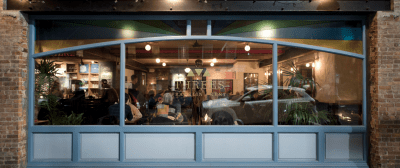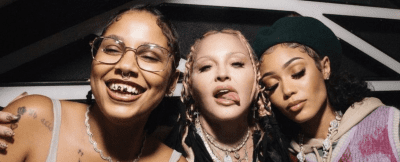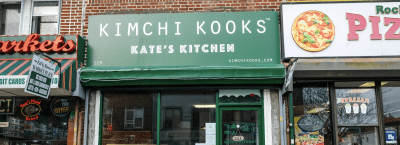Photo illustration by Johansen Peralta
Dianne Morales is still in the race
In an interview recorded before controversy engulfed her campaign, Morales discusses who she is and how she'd run the city
Like what you’re hearing? Subscribe to us at iTunes, check us out on Spotify and hear us on Google, Amazon, Stitcher and TuneIn. This is our RSS feed. Tell a friend!
Dianne Morales’ mayoral campaign is in disarray. Last Tuesday internal issues at her campaign bubbled to the fore when her campaign manager resigned saying she “would no longer be able to continue on the campaign until harmful actors were removed.”
On Thursday, Morales fired four staffers amid efforts to unionize. Other employees launched a work stoppage and one demanded she suspend her bid. In all, eight people have left the campaign.
The unraveling of Morales’ campaign over concerns about health benefits, wages and unionization—as well as allegations of workplace hostility—seem to undermine her public positioning at the vanguard of the progressive wing of the city’s Democratic Party.
It also all went down after this podcast interview with Morales was recorded.
Dianne Morales is still in the race, for now. She is a first-time candidate for any office. And if elected she would be the city’s first woman, first Latinx, and second person of color to be mayor of New York, which says more about us than it does about her.
“I recognize I’m not a traditional candidate. I’ve got what are considered radical ideas,” she says in this episode of “Brooklyn Magazine: The Podcast.” “But this is a radical time that we’re living in. The intersection of multiple pandemics that have really come to a head over the course of the last year make it crystal clear that we’re at a crossroads here.”
A Bed-Stuy native and single mother, she is a former educator who has worked both in the school system and in the Department of Education. She was a founding member of Jumpstart, the national early childhood nonprofit organization, and since 2010 she has served as CEO and executive director of the Phipps Neighborhoods, a Bronx social services organization.
“I’ve spent my career working to support some of our city’s most vulnerable communities, our most marginalized. Folks that actually kept the city running during the pandemic,” she says. “[I] was really looking for how I could take those skills and experiences to the next level. To create as as much impact and as much positive change for the largest number of people as possible.”
Comments like that may sound at odds with the current situation in her campaign. “Our campaign works to intentionally center the voices of those who are excluded from politics,” she said in a statement late last week, after this podcast interview was recorded. “We acknowledge that mistakes have been made in our attempts to do this.” But the statement didn’t go far enough for the staffers who feel alienated by the management of her campaign.
Still, Morales remains in the race, and the conversation we had in this podcast episode remains representative of what she hopes to do if elected. Early voting kicks off June 12-20, and the primary itself will be held on June 22.
If elected Morales says she wants to address inequities in housing on day one. “Guaranteed free housing for all is critical,” she says. “You can’t separate access to housing from public health and public safety. Housing is a human right and we should make sure all of our neighbors have access to that basic security, because it also has an impact on us.”
On education, she wants to issue an executive order within the first 100 days that would begin the process of desegregating schools. On policing, she is advocating for major structural reform of the NYPD. Across the board, she seeks to reverse “targeted” divestment from Black and brown communities, and make sure everyone’s basic human needs are being met.
“The pandemic really laid bare all these deeply rooted disparities and inequities that existed long before Covid-19 and made it worse,” she says. “I have eschewed labels and boxes in this race. It bites me on the ass on both sides. The really left folks are like, ‘Why isn’t she claiming it?’ Other folks are like, ‘She’s too far left.’ The reality of it is I am who I am. I believe in certain things that I think benefit the community at large rather prioritizing small percentages.”
You might also like 


























